Creality Halot-One it’s the first one 3D resin printer which I actually put my hands on. You can then understand the initial concern: I had to understand how it works and print something damaging the entire office.
I want to cheer you up right away: no colleague was injured or intoxicated in the course of my experiments. Indeed, things went better than expected. But let’s go in order and let’s venture into this one Creality Halot-One review.
The first step: understand what you need to do
Creality Halot-One package includes:
- the printer
- the colored lid
- the printing platform
- the resin tray
- a USB stick with Halot Box software
- 3 hex keys
- a brush
- a filter
- a replacement film
- a spatula
- the power cord
At first glance, it might seem like a lot, too much for a novice. In reality, the instructions and the video included in the stick will help you take the first steps without too much difficulty.
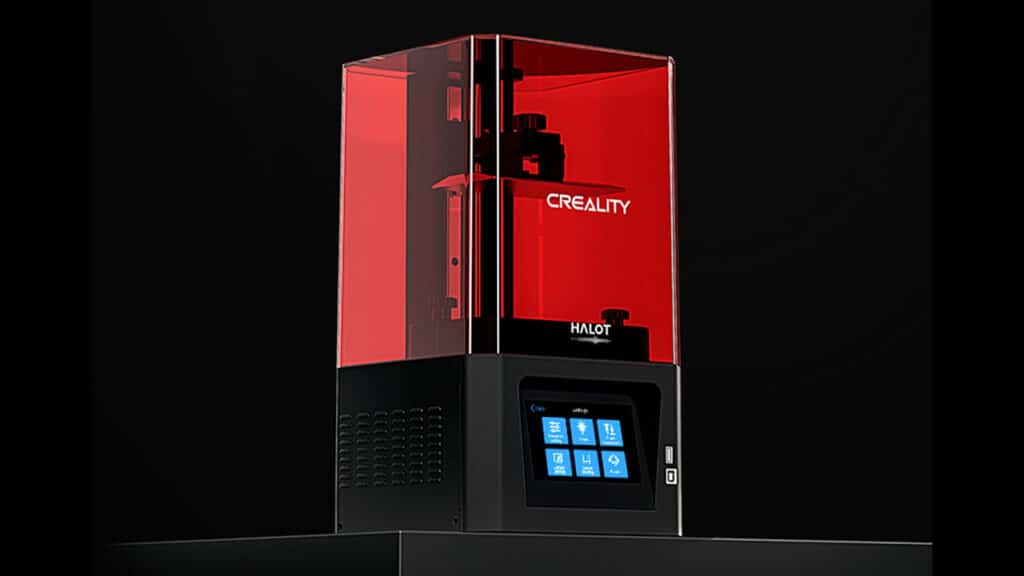
The first step is simple: you need to assemble the printer. Or rather, you have to hook the printing platform which is the only component that is not already in the appropriate housing.
Remove all the films, screw in everything you need, connect the cable and then do the calibration. In reality Creality Halot-One comes pre-calibrated at the factory but, considering the transport, I suggest you do this step again.
At the end of this step you will only have to reposition the tray, hook it with the screws – integrated so you do not lose them – and get ready for your first print.
If you want you can take an extra step: connect it to Wi-Fi. This allows you to update the firmware without the need for complex cables and / or keys.
The second step: start printing
At this point you will be almost ready for printing. “Almost” because first of all you will have to install the software, Halot Box. You can find it directly on the key and, once you get used to it, you will find it very simple to use.
Basically all you need to do is import compatible files, use the Move and Size buttons to decide the position on the plate and the size and finally press Print. This will create another file that contains all the necessary data for Halot-One.
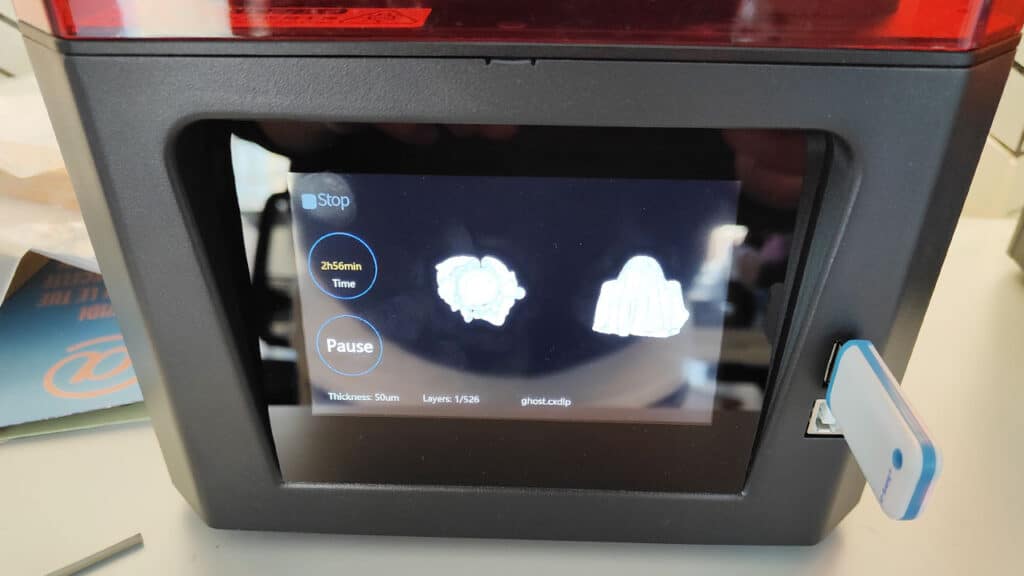
You just need to start the printer save the file on the stick, insert the latter into the door on the front, pour the resin into the tray (using gloves and a mask) and then use the 5-inch touch panel to start printing.
The screen will also show you the estimated time to bring your work to life, with a couple of images that will remind you of what you are actually creating.
A small note: this is a potentially toxic material, to be handled with care, which emits a strong odor so make sure you are not in the same room as you print.
The third step: admire the result
At the end of the print, you will find that the object is upside down. The plate, initially immersed in the resin tray, rises slowly to the top and to the end you will find the product of your efforts upside down. What to do? Well, you peel off the plate, put it down and remove the print.
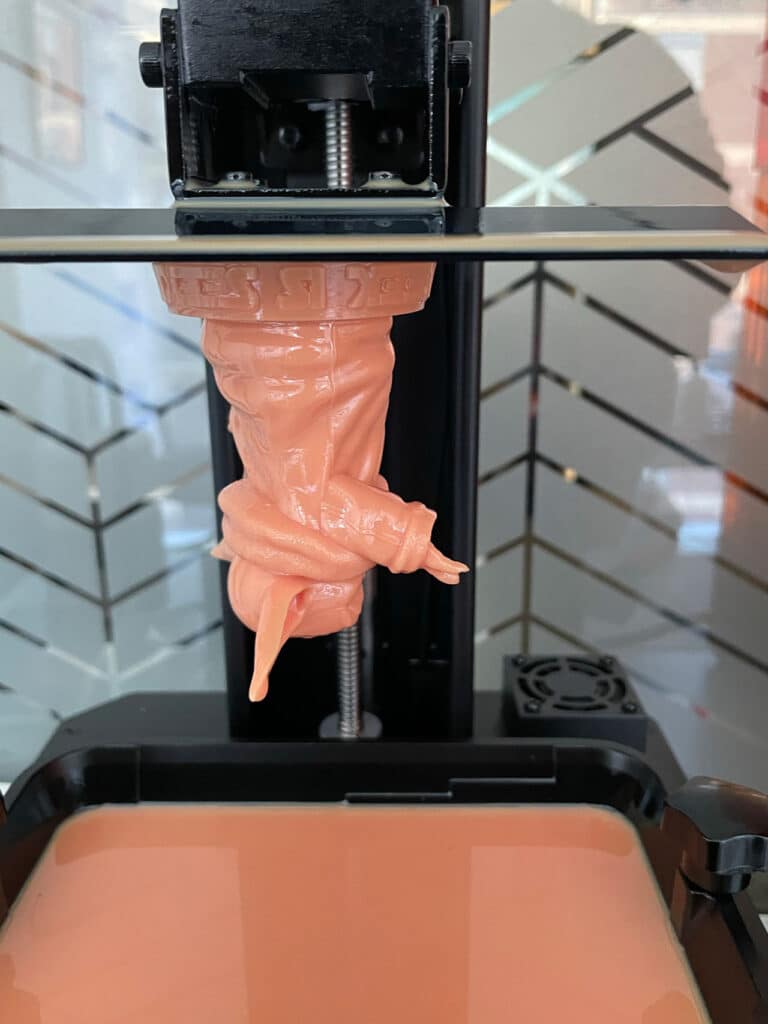
This will not always be easy. Sometimes the resin will remain firmly anchored to the metal plate so you will have to be patient and use the spatula to separate the two elements. If that doesn’t work, I suggest you use denatured alcohol to facilitate the process.
Alternatively, you can take advantage of exposure to the cold or, conversely, a little hot water.

Once the print has been removed, you can finally admire it. Know that Resin 3D printer products turn out smoother and more accurate compared to those made with filament models. Halot-One offers exactly this and is a good solution for those looking to print detailed elements.
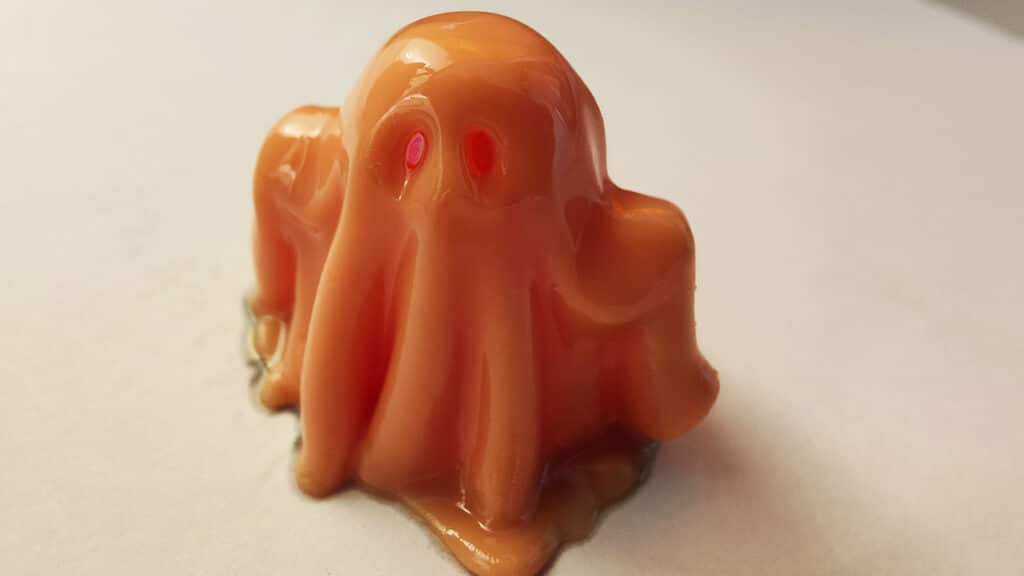
Creality Halot-One: pros and cons
Creality Halot-One she performed well during the test. We found it very simple to use, intuitive, featuring a display that helps you complete various tasks, a built-in Wi-Fi module for quick and painless updates, and a very useful internal memory. Unlike other printers, in fact, that of Creality copies the file present in the key so in case of malfunctions and disconnections of the external archive the printer continues to work.
And the flaws? We have identified mainly two of them. First of all the instructions, partially in Chinese and with no indications regarding cleaning the machine. I had to consult some experts and the network to understand that alcohol was the best solution, especially for the tub. The second cons is the software. It is minimal and this allows newbies to understand what to do but it has a few bugs too many. Also know that it is the only program you can use with this model.
Is it worth buying it? Creality Halot-One is for sale in 299 €. In my opinion a more than adequate price for this product.
But know that it is not for everyone. A speech that however applies in general to all resin 3D printers. Keep in mind that this type of products must be placed in ventilated places, maintenance requires great attention and printed objects should be washed in special solutions after production. That’s why we have placed it alongside the Creality UW-01 which takes care of the washing and finishing of resin prints.
If all of these things don’t scare you, then this printer will give you some satisfaction.






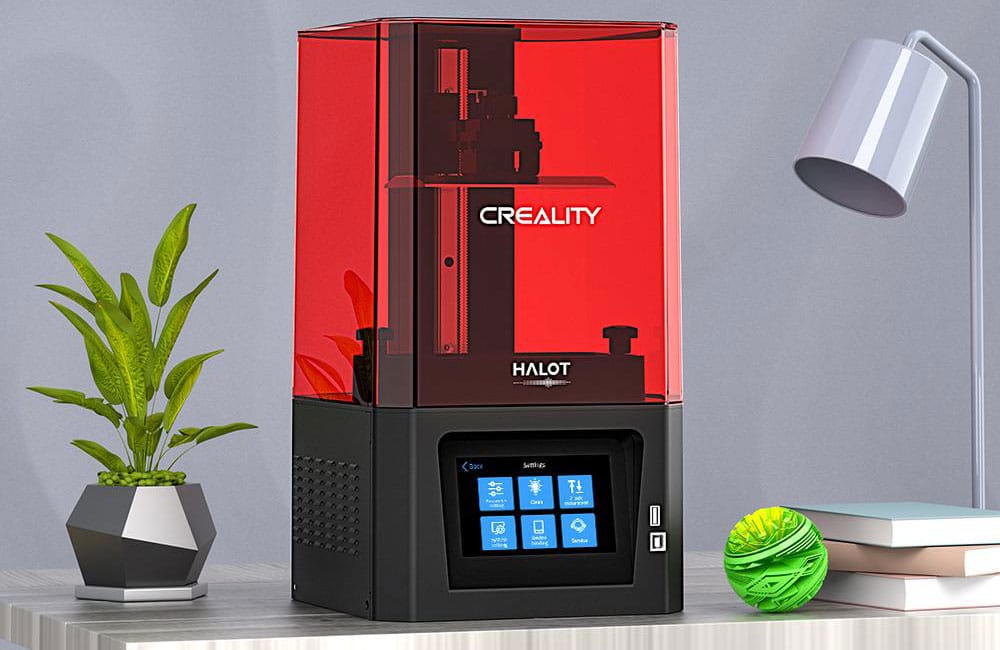








Leave a Reply
View Comments